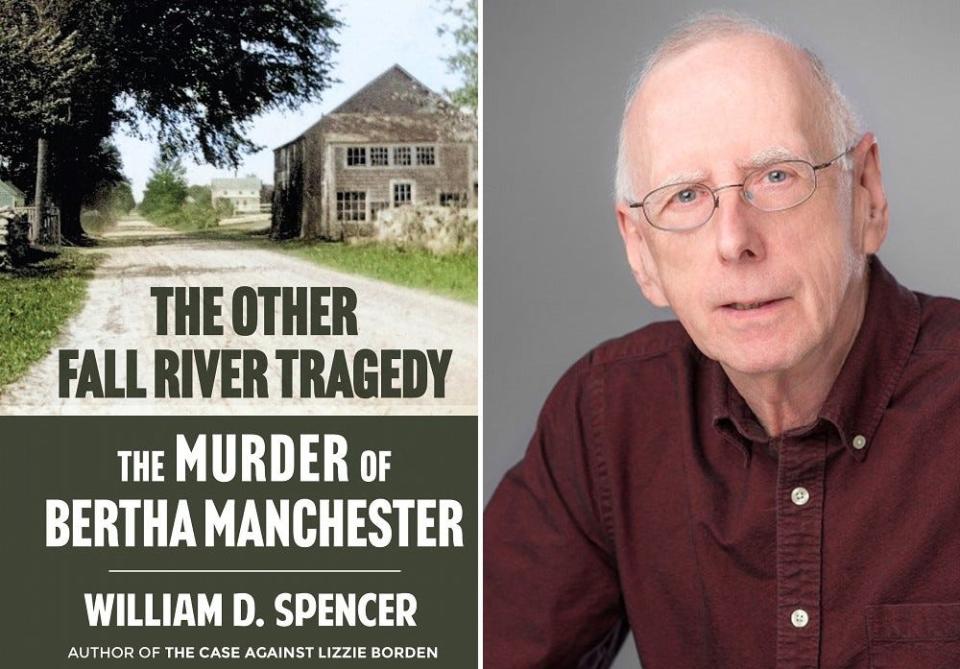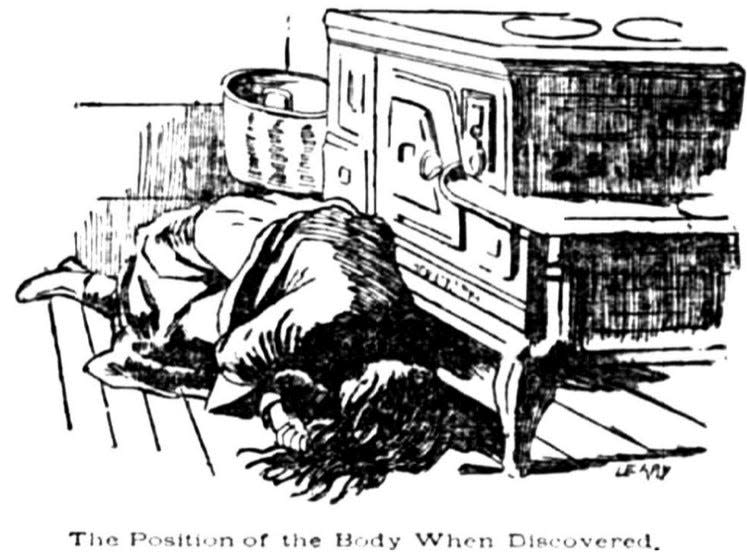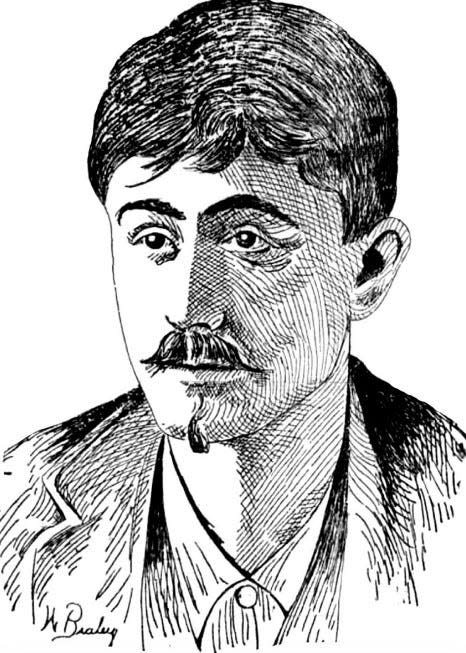It's not Lizzie Borden: New book looks at the Fall River axe murder you never knew about
Fall River, 1890s: A vicious killer has axe in hand and murder in mind. The blade cuts the air as it swings in its deadly arc, embedding in a human head — then it’s withdrawn, pulled back, and swung down hard again, and again, and again, many whacks leaving the victim a gruesome mess.
Everyone knows the Lizzie Borden murders, but this is not that case. This is the murder of Bertha Manchester, who was slaughtered on May 30, 1893, only months after the Bordens were killed — and it’s the subject of a new true-crime book available now by author William D. Spencer: “The Other Fall River Tragedy: The Murder of Bertha Manchester.”
The Manchester case rocked Fall River at the time, but is little remembered these days. But while the crime is superficially similar, the details prove startlingly different, a case that involves immigration and social class — and it may have affected the Borden trial.
Dead letter office: Lizzie Borden letter delivered 126 years later — to the Fall River Historical Society

Still reeling from Lizzie Borden, another axe murder rocks Fall River
The Borden case will forever be a mystery, but we know exactly who held the axe and killed Bertha Manchester: Jose Correa de Mello, 19, a Portuguese immigrant from Arrifes, São Miguel, just outside Ponta Delgada in the Azores.
Spencer’s book tells the story of both de Mello and the Manchester family, who owned a dairy farm on what is today Meridian Street near Joseph Drive, close to Wilson Road.
“[De Mello] didn’t speak any English at all,” said author, local historian and expert in the Borden case Stefani Koorey. “He worked for Stephen Manchester off and on.”
Fall River true crime: Historical Society's new book could have Lizzie Borden fans rethinking theories
On what was then known as Decoration Day, now Memorial Day, Stephen Manchester, his son and a farmhand made the four-mile trek into town to sell milk, leaving behind 22-year-old Bertha to run the house. Thinking the farmhouse was empty, and believing Manchester owed him some money for work he’d done on the farm, de Mello broke into the home and ransacked it, looking for cash and valuables.
Bertha heard the intruder. She was “well-built and feisty,” Spencer writes, "the kind who would likely put up a fight if challenged” — and used an axe to attack de Mello twice. But he overpowered her and they struggled over the weapon, knocking out several of her teeth.
According to his defense attorney, Spencer writes, “’Mad passion' came over him and, once able to wrest the axe from Bertha, he repeatedly hit her in the head with it until she was dead.” Then he fled the scene.

How the Manchester killing 'complicated' the Lizzie Borden trial
Spencer’s book thoroughly details the investigation into the brutal killing, which took place just before Lizzie Borden headed to trial.
“So now the police have another axe murder on their hands that’s five days before the jury gets sequestered in the Borden trial," Koorey said. “So are they going to think that there’s a serial killer out there, and that Lizzie didn’t do it? It complicated things.”
Indeed, in the Borden case, some had suspected the killer might be a Portuguese laborer that sometimes worked on the Bordens’ Swansea farm.

The book touches on bigotry and classism that may have been at play in the police investigation that makes the case far different from the Borden killings. The police treated the Bordens with the gentility befitting their upper-middle-class status. Meanwhile, Stephen Manchester was forced to sleep in his barn for days while his house was locked down as a crime scene; as a non-English-speaking immigrant, de Mello was denied a lawyer and subjected to lengthy interrogations where, Spencer writes, a confession was psychologically “beaten out of him.”
“They tricked his uncle into bringing him to the police station to turn himself in because they thought it was just for stealing,” Koorey said. “Because that’s what they told him.”
What Fall River is famous for: Here's why the infamous legend of Lizzie Borden will never die
A new look at an old crime
Spencer’s true-crime book explores how Portuguese immigrants rallied around de Mello, compared to how Lizzie was shunned by her peer community. "The Other Fall River Tragedy” is the first book to take on the Manchester case, and contains rarely seen images and transcripts from legal hearings.
Spencer has also written two books about the Borden case: “Lizzie Borden Uncut: A Casebook of Theories,” and “The Case Against Lizzie Borden.”
His books, independently published by North Forest Press, are available in print and digitally on Amazon.
Dan Medeiros can be reached at dmedeiros@heraldnews.com. Support local journalism by purchasing a digital or print subscription to The Herald News today.
This article originally appeared on The Herald News: True crime book: Fall River axe murder may have affected Borden trial

